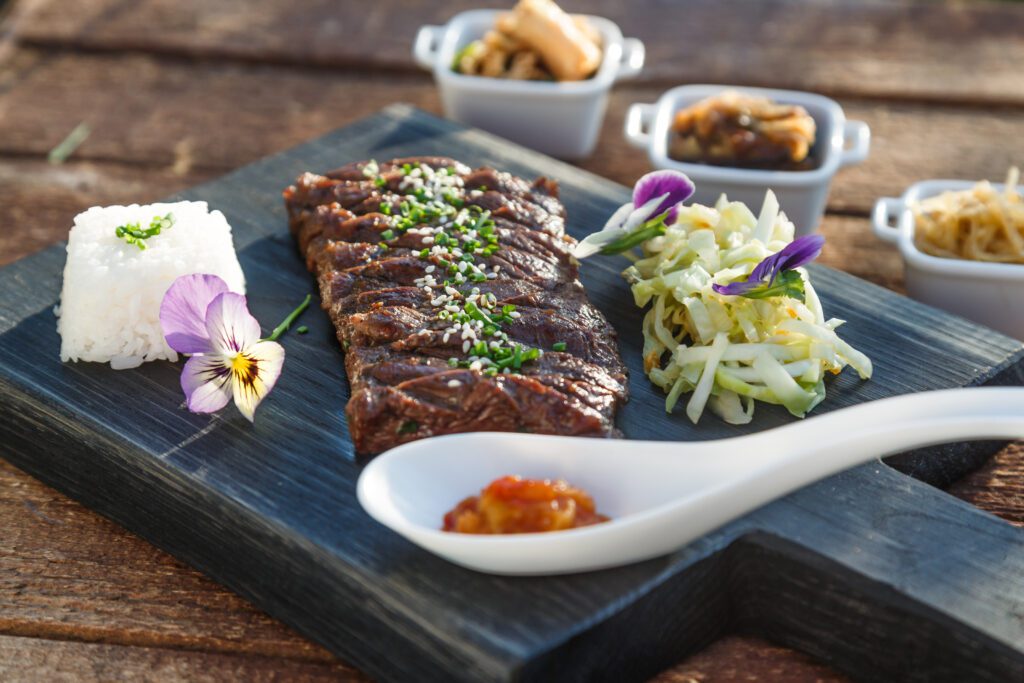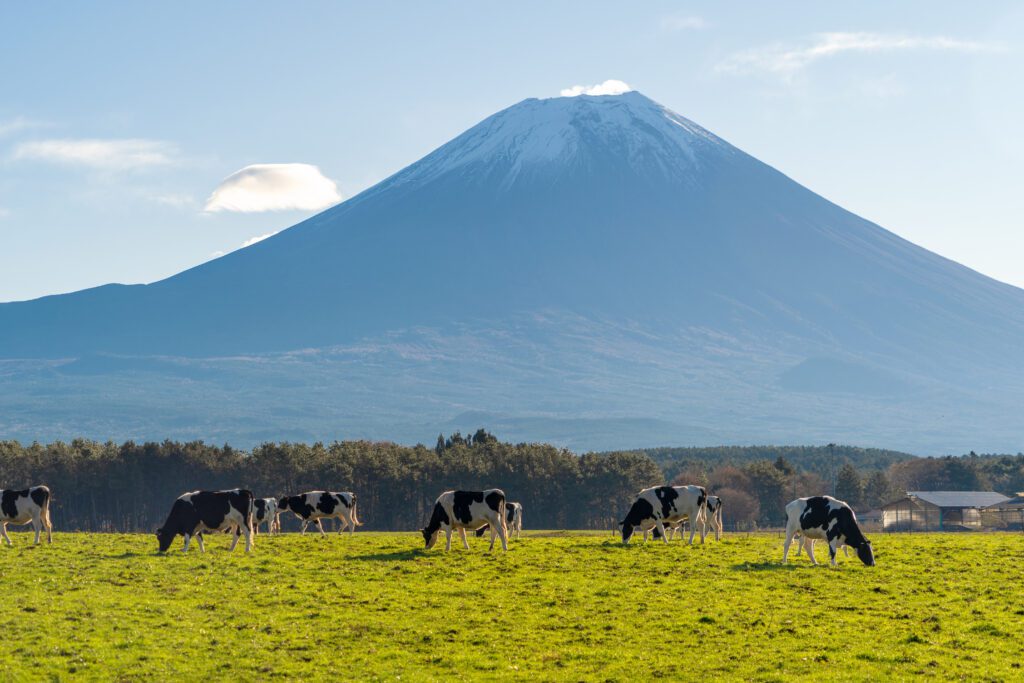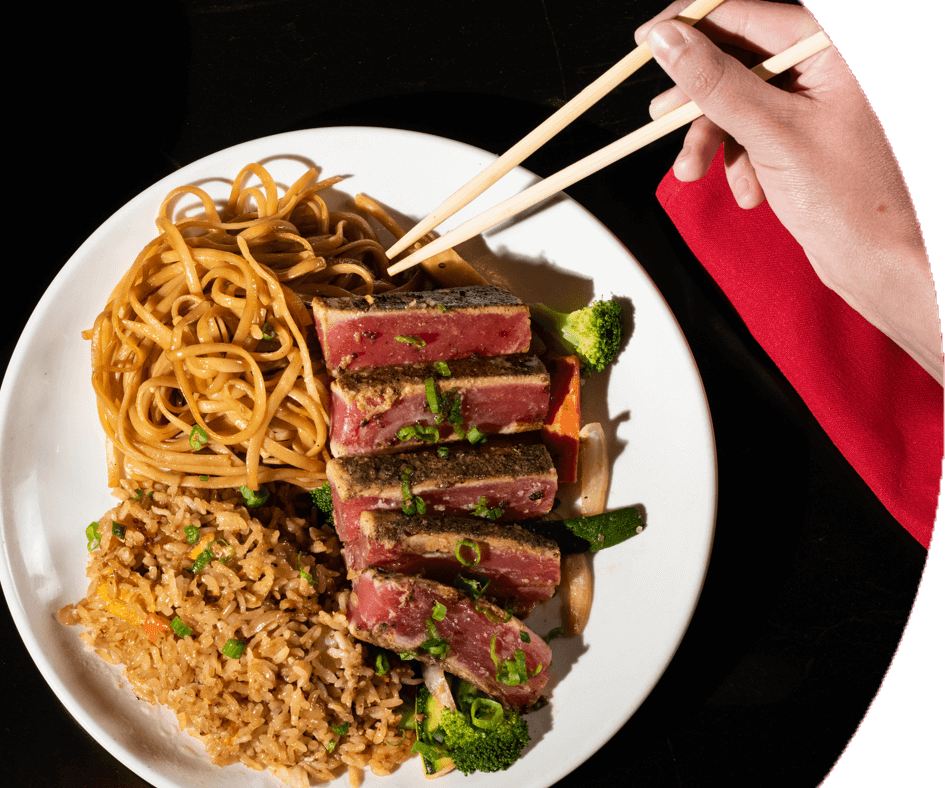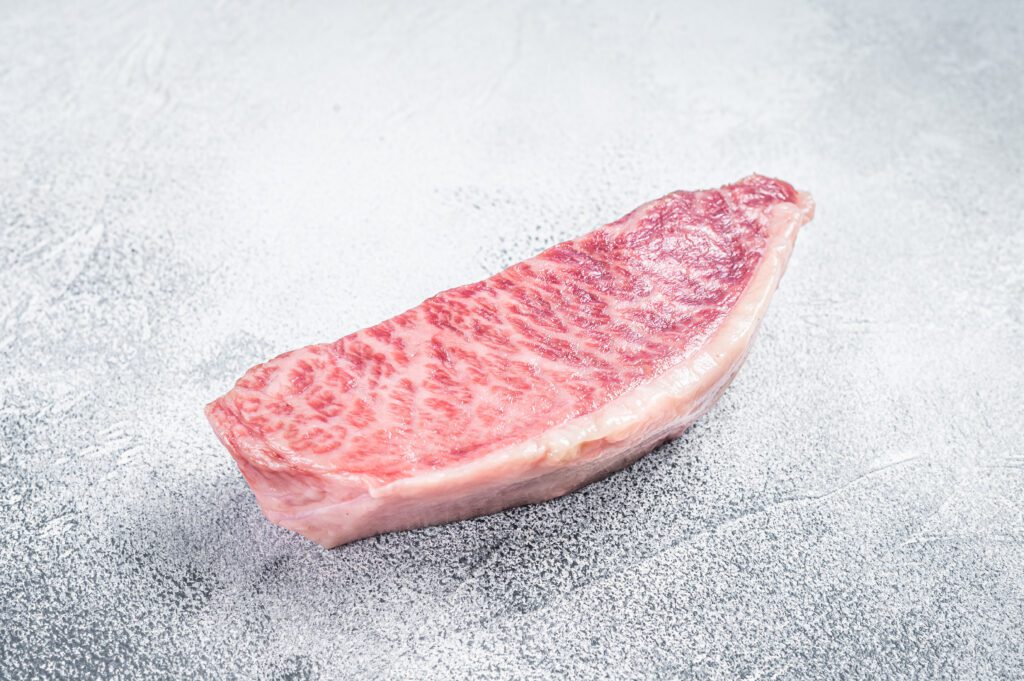When you think of Kobe beef, you probably associate it with some of the highest-quality meat on the market. You may have even heard a rumor that the cows are massaged and fed beer so that they can live a good life before becoming your dinner.
While that may not be 100% true, it’s a fun anecdote nonetheless. So, what really makes Kobe beef so special then?
Renowned for its exceptional quality and melt-in-your-mouth marbling, Kobe beef is a prized and highly sought-after Japanese delicacy, celebrated for its unparalleled tenderness and rich, buttery flavor. It is a delicacy and a staple of Japanese cuisine and culture.
Trust us, at Kobe Steakhouse, we know our beef. So, we’re going to discuss what makes this type of meat special and sought-after. Let’s dive right in!

Origins of Japanese Beef
The history of this beef traces back to Japan’s Hyogo Prefecture, particularly the city of Kobe. Its origins can be linked to the late 19th century when Japan underwent a period of rapid modernization and Westernization. Because of widely accepted Buddhist beliefs in ancient Japanese culture, many people didn’t eat beef before these Western ideas were introduced.
Cattle were initially brought to Japan as work animals for agricultural purposes, and it was the Tajima strain of Japanese Black cattle, raised in the Hyogo region, that eventually became the foundation for Kobe beef. Farmers in the area recognized the potential of these cattle for meat production and began to raise them with utmost care and attention.
This grew more after the end of World War II. Once the economy started to recover, beef became more of an occasional splurge for residents. As the economy grew, so did the Japanese population’s appetite for the contemporary delicacy.
The result was a breed that displayed remarkable marbling, exceptional tenderness, and a uniquely rich flavor profile, which was called Wagyu beef. Today, the production of genuine Wagyu beef is highly regulated and limited to a select number of cattle that meet strict criteria, ensuring the continuation of this extraordinary culinary legacy.
What is Wagyu Beef?
Wagyu beef is a term that has gained international acclaim for its exquisite quality and is often associated with Japanese beef. The name “Wagyu” translates to “Japanese cow” (Wa meaning Japanese, and Gyu meaning cow).
It is known for its distinct marbling, the fat-to-meat ratio. Typical Wagyu beef has a great deal more fat in their steaks which provides a buttery, melt-in-your-mouth experience to the meat. With all of this fat, Wagyu requires little to no extra ingredients to cook.
No oil. No seasoning. Just meat.
You cannot just make Wagyu out of any cow. There are criteria that need to be met. While Wagyu may just mean Japanese Beef, there are specific breeds of Japanese cattle that produce Wagyu. For example…
- Japanese Black
- Japanese Brown
- Japanese Polled
- Japanese Shorthorn
Each of these breeds brings its own diverse characteristics to the cut of beef, elevating it above other regular cuts.
Raising Wagyu Cattle
Raising Wagyu cattle is an intricate and meticulous process that places great emphasis on the well-being and development of the cattle. Wagyu cattle are bred in controlled environments that prioritize their comfort, diet, and overall health.
These cattle are typically raised in a stress-free environment, with ample space to roam, minimizing muscle strain and encouraging the desirable marbling of their meat. Feeding plays a crucial role in producing the signature marbled texture, and it often involves a balanced diet that may include high-quality grains and natural grasses, promoting gradual weight gain and rich fat deposition.
The close attention to their care results in Wagyu cattle that are not only well-marbled but also exhibit a calm disposition, which is believed to further enhance the quality of their meat.

Kobe Beef vs Wagyu Beef
Have you ever heard the adage, “All thumbs are fingers, but not all fingers are thumbs?” The same idea could be applied to Kobe and Wagyu beef.
All Kobe beef is Wagyu beef, but not all Wagyu beef is Kobe beef. Make sense?
Wagyu refers to a broader category, encompassing several Japanese cattle breeds, including those raised in the Kobe region. Kobe beef, on the other hand, is a specific subset of Wagyu, hailing exclusively from the Hyogo Prefecture, particularly the city of Kobe.
Kobe beef typically costs between $200 and $500 per pound, whereas Wagyu beef is priced in the range of $50 to $150 per pound.

What is Kobe Beef?
So, what makes it so special compared to other types of beef?
Kobe beef is very distinct and is considered to be the highest quality beef Japanese cattle can produce. It is not just another piece of beef you can buy at the supermarket. Now, we will discuss the factors that set it apart from other, lesser cuts.
The Caviar of Beef
Kobe beef is actually called the caviar of beef because of how rare it is to actually come by. Similar to how caviar is a symbol of refinement in the world of gourmet cuisine, Kobe beef is celebrated for its exceptional texture and flavor, making it a rare and treasured indulgence for those who appreciate the finest in culinary experiences.
As we’ve referenced earlier, authentic Kobe beef is sourced from Kobe, Japan. If the cows are not from there, it is not true Kobe beef. Its status as a luxury delicacy is attributed to the meticulous and stringent standards applied to its production, including the lineage of the cattle, their diet, and their living conditions.
Flavor Distinctions
Kobe beef boasts a distinct and captivating flavor profile that sets it apart from other types of beef. Its hallmark is an exquisite marbling of intramuscular fat, which contributes to its exceptional tenderness and a rich, buttery texture.
Its flavor is best described as sweet and lean. The sweetness of the meat comes from the caramelization and dissolving of the fat in the meat. Kobe beef is known for having oleic acids which will affect its taste depending on the levels. The higher the content of oleic acids, the more buttery the taste.
Seasoning Kobe beef before cooking is completely acceptable. In Japan, it is typically served with accompanying salt and soy sauce. When preparing Kobe beef, it is recommended to use a combination of salt, pepper, or a mild steak seasoning. However, caution should be exercised to avoid overwhelming the meat with excessive seasoning. The key is to let the meat’s natural flavor shine, making it the focal point of the culinary experience.
Marbling and Texture
Marbling is the most important part of proper Kobe beef. Shimofuri fat marbling is the term used by the official graders for deciding if a cut of beef is Kobe Beef.
While many look at “fat” on a steak as the inedible part of the steak, it’s key to the cooking process. Where there is fat, there is flavor. This marbling of fat dissolves at a low temperature, meaning the beef needs to be cooked carefully so as not to burn the meat. It is precisely this marbling that elevates the steak to its renowned status.

Quality Standards
Starting with the cattle, Kobe beef is strictly a product of Japanese Black cows, specifically, the Tajima strain of Japanese Black Cattle. These cows must also be raised in the Hyogo Prefecture region of Japan under very strict protocols.
Some speculate the cows are even massaged to tenderize the meat and fed beer to increase the fat content. This information is false as it falls outside of the protocols that need to be met.
Once the beef is slaughtered, it is examined and given a grade based on a few factors:
- High Percentage of Marbling
- Graded A4 or A5
- Purebred Lineage
- Only Fed Grasses and Grains
- Weight of 470 kg (1036 lbs) or less
Try Kobe & Wagyu Beef At Kobe Japanese Steakhouse
In the world of culinary excellence, Kobe and Wagyu beef stand as shining examples of unparalleled quality and flavor, celebrated by gourmets worldwide. Their legendary marbling, exquisite tenderness, and unforgettable taste have made it the epitome of luxury dining.
Here at Kobe Japanese Steakhouse, we live up to our name by creating a unique and delicious experience in each of our restaurants. Whether you’re a connoisseur of the finer things in life or simply an enthusiast of exquisite cuisine, our establishment offers a unique opportunity to embark on a culinary journey.
Craving some of these mouthwatering meats? Come in and try our Wagyu or Kobe beef for yourself or order online today!
